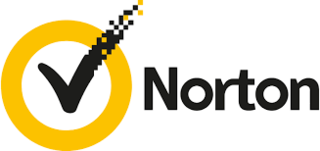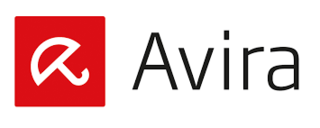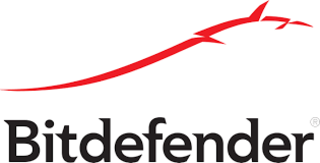6 Best Antivirus Software
People are spending more time than ever on the internet, and with that increase in screen time comes an added exposure to online threats. Antivirus software can help safeguard our devices from cyberthreats like spyware, trojans and viruses by identifying them and stopping them in their tracks. After all, even the most experienced users — and the best computers — are susceptible to these dangers.
Read on to learn more about our picks for the best antivirus software, as well as how antivirus software works and the types of malware it can guard you from.
Our Top Picks for Best Antivirus Software
- Norton 360 Premium - Best for Mac
- Avast - Best Free Antivirus
- McAfee - Best for PC
- Avira - Best for Android
- Bitdefender Premium Security - Best Multiplatform Antivirus
- Malwarebytes - Best for Chromebook
Best Antivirus Reviews
Price: $49.99 (first year) / $124.99 per year
- Anti-spyware, anti-malware and anti-ransomware
- Secure VPN for ten devices with no data limit
- Ad tracker and blocker
- Parental controls
- SafeCam is only available for Microsoft Windows computers
- Cloud backup is only available for Windows PCs
Why we chose it: Norton 360 Premium offers Mac users a high level of protection against malware, hackers and other viruses while also giving access to a password manager and private VPN.
Popular belief holds that computers running on the Mac OS system don't need malware protection — but that’s not true. According to AV-Test, an independent IT security institute, in 2020 there were around 240,000 different types of viruses designed for this operating system.
The Norton 360 Premium plan offers a 100% virus protection promise with a money-back guarantee if a Norton expert cannot remove the computer’s malware. Norton also offers other virus protection alternatives for Mac OS at both more and less expensive price points, including Norton 360 with LifeLock Select and Norton 360 with LifeLock Ultimate Plus.
These antivirus security suites can protect up to five devices and include a smart firewall, secure browser and dark web monitoring. Norton 360 with LifeLock Premium also offers identity restoration services, Social Security alerts and reimbursement for funds stolen due to identity theft.
Price for the Premium Security plan: $44.99 (first year) / $89.99 per year for up to 10 devices
- Scans devices in seconds
- Password protection
- Home network security
- Protection for one device at a time
- Not available for Chromebooks
Why we chose it: Avast One Essential provides a basic yet powerful virus protection and is available on all major operating systems.
Avast is a solid option for those who are looking for a plan with basic protection. The company’s free antivirus software, Avast One Essential, covers Mac OS, iOS, Windows and Android devices. Avast’s cloud-based protection blocks viruses and other types of malware, warns users about unsafe sites and blocks intrusive web trackers.
Avast also offers subscription-based options that can cover up to 10 multi-platform devices. The Avast One and Avast One Platinum antivirus programs include security tools such as a VPN, anti-tracking software and a cleanup and protection against viruses, ransomware and spyware.
Avast Platinum also includes a data or file shredder, which is a feature that allows users to irreversibly erase files or whole drives to avoid the misuse of data by cybercriminals.
Price: $39.99 (first year) / $119.99 per year for up to five devices
- Secure Wi-Fi scanner
- Wi-Fi Guard VPN
- Public Wi-Fi protection
- Anti-theft protection
- Wi-Fi Guard VPN is only available with a Premium subscription
Why we chose it: McAfee’s Essential Plan provides performance optimization, real-time virus protection and wider protection against malware than Microsoft Defender, the default antivirus software for Windows.
McAfee Mobile Security is an established brand in the cybersecurity world that is known for its high-quality products. The company’s antivirus is no exception: It regularly receives positive reviews from customers and is awarded high marks from independent IT organizations like AV-TEST and AV-Comparatives.
McAfee Antivirus automatically detects, quarantines and removes malware, alerts users before they visit hazardous websites and flags phishing and hacking attempts. The software also allows users to choose between on-demand and scheduled scanning of files and applications. Moreover, all of McAfee’s antivirus plans come with 24/7 assistance from security experts and additional cybersecurity services, including a VPN, a password manager and identity monitoring.
Although McAfee only offers yearly subscription plans — which is not uncommon among antivirus software — it has a 30-day money-back guarantee. Its plans also come with a Virus Protection Pledge, which states that if McAfee cannot remove a virus from your device, they will refund you the amount you paid for your current term subscription.
Price: $3.99 per month
- Android protection in Avira Prime and Avira Prime for Mobile antivirus
- Automatically blocks spam and scam calls
- Network Protection
- Annual subscription not available
Why we chose it: Avira Prime for Mobile offers Android users antivirus protection, unlimited VPN, identity safeguard and a password manager.
Avira offers two options for Android users: Avira Prime and Avira Prime for Mobile. Avira Prime is the best option for users interested in protecting other PCs or Mac OS devices. This subscription-based antivirus protects up to 25 devices, and it’s available in monthly and yearly plans.
In trials, Avira antivirus has been proven not to slow down mobile devices while in use and doesn’t impact battery life.
Price: $69.98 for the first year/ $149.99 per year (10 devices)
- Secures PC, Mac, Android, iOS
- Includes unlimited VPN
- Real-time anti-phishing, antispam, anti-fraud
- Parental controls
- Most affordable plans only cover PCs
- Not available for Chrome OS
- Most affordable plans only cover PCs
Why we chose it: Unlike other antivirus software, Bitdefender Premium Security protects PC, Mac OS, Android and iOS, and includes unlimited VPN for each of these platforms.
Bitdefender Premium Security is a comprehensive cybersecurity suite that comes with a password manager, social media and real-time data protection, a vulnerability assessment and network threat prevention in addition to its user-friendly antivirus software.
Bitdefender also offers other antivirus products including Bitdefender Antivirus Plus and Bitdefender Total Security. Both security software feature a privacy firewall, protection against malware, spyware and adware, protecting up to 10 multi-platform devices.
In AV-Test trials, Bitdefender has shown to slow down the installation of frequently used apps minimally. However, the high-quality detection of widespread malware makes this antivirus software stand out from its competitors.
Price: $1.99 per month / $11.99 per year (Premium)
- Monitor the access privileges of every app on your device
- Targets adware, spyware and browser hijackers
- Available in 10 different languages
- Free version available
- Barebones free version
Why we chose it: Malwarebytes stands out from other antivirus software for Chrome OS due to its focused targeting of disruptive malware and its privacy audit feature.
Malwarebytes anti-malware and safe web browsing software boasts top marks from multiple independent IT organizations, including AV-TEST, AV-Comparatives and AVLab. In addition to real-time detection and protection against malicious apps, the antivirus also warns users of phishing attempts and ransomware attacks before your device is compromised.
Another one of Malwarebytes’ biggest selling points is its privacy audit feature, which lets you keep tabs on what information you are sharing with every single app of your Chromebook device. This includes whether apps can track your location, read your personal information and other access privileges.
Malwarebytes is also a great solution for targeting adware and spyware. The software is specially engineered to aggressively target these types of malware, as well as potentially unwanted programs (PUPs) and browser hijackers.
Other Companies We Considered
When researching and selecting the best antivirus software packages, we encountered companies whose software provided good protection against malware, but lacked features, slowed down devices, and didn’t offer competitive prices.
Kaspersky
- Real-time antivirus
- Anti-phishing
- Anti-hacker and anti-malware
- Controversy regarding its ties to the Russian government
- Most affordable antivirus is only available for PC
Kaspersky provides complete malware protection, even detecting malware that has attacked your PC up to four weeks before installation. Kaspersky Standard also includes web protection, phishing protection, a VPN and other security features. This antivirus software stands out in tests for its accuracy in virus warnings and false blockages.
Kaspersky did not make our top list due to the controversy surrounding its alleged ties to the Russian government. The US government banned Kaspersky security cloud software in 2017 after claiming that the company had worked on secret projects with Russia's Federal Security Service. It also claims that hackers working for the Russian government stole confidential data from the National Security Agency via its antivirus software.
Although Kaspersky denies these allegations, we recommend that consumers consider another antivirus software first.
Webroot
- Protects Chromebooks
- Protects personal data such as account logins and passwords
- Stops ransomware
- 70-day money-back guarantee without credit card requirement
- Some features are only available for Windows, Mac and Android users
- Few features compared to other antivirus software
- Wi-Fi protection is available in more expensive subscription plans
Webroot isn’t part of our main list because its antivirus has fewer features than other similarly priced software. This antivirus has not been part of AV-Test comparatives since November 2016, and there’s not enough information about its performance to compare it to the other companies.
Sophos
- Available for Windows and Mac
- Free real-time protection and web filtering for up to three devices
- Subscription-based option protects up to 10 devices
- Subscription includes real-time protection, web filtering, advanced threat and privacy protection
- Not available for iOS devices
- Subscription-based option doesn't have a lot of features
- No identity protection
Sophos didn’t make it to our top list for the lack of features in its subscription-based option and because its user products have not been part of AV test trials since 2019.
Eset
- Protection for Windows, Mac, and Android
- Performance optimization feature
- Anti-phishing, antivirus, anti-spyware
- Cross-platform protection
- Not available for iOS
- Most features are only available with their Ultimate subscription
Eset doesn’t take part on our main list because this multiplatform antivirus doesn’t include iOS. In AV test trials, Eset has been shown to slow down the installation of frequently used applications in PC and Mac computers.
Trend Micro
- Stops viruses and protects against ransomware
- Anti-phishing
- Blocks websites that can potentially steal personal information
- Multiplatform protection, password manager and VPN is only available with the Maximum Security plan
Trend Micro antivirus isn’t part of our main list because customers must purchase their most expensive option to obtain complete device protection. This subscription covers up to 10 devices, making it a pricier option for those looking to secure a more limited amount of personal devices. In AV Tests trials, this antivirus slows down launching popular websites and installing frequently used applications on PCs.
AVG
- Available for PCs, Mac, Android and iOS
- Free version available
- AVG Ultimate includes: Internet security, VPN and system optimization
- Free version blocks viruses, and protects against spyware and ransomware
- AVG Ultimate doesn't have a free version
- AVG VPN and Tune Up only have a 7-day free trial
- Only one device coverage for PCs
- Android and iOS free version only offers malware protection
AVG didn’t make it into our main list because their free version only includes blockage for viruses and other malware. Free antivirus software usually includes additional features and broader protection. In trials, AVG significantly slowed down the launching of commonly used applications in PCs, and only their AVG Internet Protection has a 30-day free trial.
How does antivirus software work?
Antivirus software scans devices to check their files, documents, programs and applications for signs of malware (a portmanteau for malicious software). Most antivirus software not only examines your device to find viruses and other malicious programs, but also eliminates them and protects your device to avoid future breaches.
There are different methods that antivirus programs use to detect and eliminate malware. For example, machine learning helps antivirus detect if a file is malicious through the use of an algorithm. Cloud antivirus detection offloads antivirus workloads to the cloud rather than bogging down a user's computer, but requires constant connection to the internet.
Many antivirus software comes with additional cybersecurity tools to provide comprehensive protection online, such as:
- VPN service, which reroutes internet traffic to encrypt user data and mask their IP address. This grants users an added layer of privacy and security online.
- Password manager, which stores and manages passwords in an encrypted database, limiting your exposure to data breaches.
- Parental controls, which can help regulate your child’s screen time and may even be able to monitor their location via GPS device tracking.
- Identity theft protection, a combination of software monitoring and alerts meant to warn users of suspicious or fraudulent activity related to their personal information. (If you’re interested in protecting your identity, check our selection for the best identity theft protection.)
Types of Malware
Malware is a term that covers a wide assortment of malicious software. Viruses, trojan horses, worms, ransomware, spyware and adware are all considered malware.
These types of software are intentionally designed to be harmful to computers, networks and servers. They may disrupt, damage or grant access to infected devices, for example, slowing down performance, attacking data and resources or leaking private information.
Viruses
A computer virus spreads between computers and causes damage to data and software. This type of malware is typically hidden within a seemingly harmless program that can replicate and infect other programs or files after a person runs it on their system.
Computer viruses are likened to biological viruses because of the way they attack target hosts. A biological virus moves from person to person and must inject its DNA into a cell to reproduce, as it cannot do so by itself. Likewise, a computer virus passes from computer to computer and must insert its code into other files to continue replicating.
Trojan horses
Trojan horses deliberately mislead users to download them by disguising themselves as genuine programs. They are named after the wooden horse from the ancient Greek story of the fall of Troy, and are similarly used to trick their victims. Once inside your computer, trojan horses can attack your system, manipulating its data and setting in a number of ways.
Though similar to computer viruses, trojans are merely designed to smuggle a code payload into a target system. Viruses can execute and replicate themselves, whereas trojan horses need to be downloaded and installed manually — unless another piece of malware does so for you.
Worms
Worms are another type of malware that is often compared to (and confused with) computer viruses due to their ability to cause damage and rapidly spread from one device to another. Unlike a virus, worms are capable of self-replicating without the need for user interaction. This makes them more infectious than traditional viruses, though they are also easier to spot and analyze.
Ransomware
Ransomware is designed to limit or block access to your device after infiltrating its system. It then threatens the victim with deleting or revealing the data in the device unless they pay off a ransom. Ransomware is usually delivered into computer systems via trojan horse, and more advanced versions of this malware can encrypt the victim’s data to make it inaccessible without the decryption key.
Spyware
Spyware covertly gathers information about you which it then forwards to a third-party without your consent. For example, it can monitor your activity and steal sensitive information from your device or web browser. This type of malware not only violates users’ privacy, but can also endanger the security of their device by interfering with computer, browser and software settings.
There are several types of spyware, including:
- Keyloggers, which secretly record the keys struck on a device’s keyboard
- Password stealers, spyware that collects passwords from the infected device
- Info stealers, which provides third parties with sensitive information such as passwords, usernames, email addresses and browser history
- Banking trojans, malware that steals information from financial institutions and modifies transactions and web portals
Adware
Adware usually appears on free-to-use software and applications as display ads in the form of pop-up windows. They generate revenue for their developer and monitor users’ interests to produce more relevant ads, at times collecting and reporting data, in which case it may also be considered spyware.
Not all adware is illegal, and the exact definition of this type of software varies between sources — as does the severity of its implications.
Ransomware
Ransomware, a type of malware, blocks the user’s access to the device. The attackers ask the user for a ransom fee to release the device.
How To Choose The Best Antivirus
Choosing the best antivirus will depend on the operating system your device is running (iOS, Android, Mac OS, Windows, Linux) and the type of additional cybersecurity features you’re looking for. Some key elements to consider include:
- Effectiveness. Antivirus scans use up system resources, which can slow down your device. Testing results from independent cybersecurity organizations can give customers insight into how significantly this may impact your device.
- Cost and discounts. Some antivirus companies have shifted their subscription model to exclusively offer yearly plans. Keep an eye out for renewal prices on your second year of service onwards, and consider whether signing up for longer terms in exchange for greater discounts is a reasonable alternative for you.
- Multiplatform protection. Most antivirus today is available on several platforms, but less popular programs might be more limited. Look for software that supports the operating systems used by the devices you want to cover.
- Cybersecurity tools. Many antivirus companies offer additional tools on their plans that can help keep users safer online. This includes VPNs, password managers, parental controls and tracker removers. Consider which of these services you really need and if paying extra for them is worth the additional investment.
Best Antivirus FAQ
How to disable antivirus?
To disable your antivirus software, look for its program icon in your desktop or application folder. Right-click on the icon and select the disable option.
Disabling antivirus software is only recommended when installing a new computer program the antivirus doesn't recognize. After installation, run the antivirus program to ensure the software scans it for any malware.What is the best antivirus?
What is the best free antivirus?
Which antivirus is the best for Windows 10?
What are the signs of a computer virus?
How We Chose the Best Antivirus Software
To select the best antivirus software, we researched a wide variety of antivirus software and considered the following factors:
- Basic software
- Extra features
- Price
We researched and used the data from trials conducted by AV-Test, an independent testing lab that tests antivirus software for PCs, Mac OS, iOS and Android every couple of months. We vetted companies based on their findings of slowing down devices, detecting malware and eliminating it.
Summary of Money’s Best Antivirus Software
- Norton - Best for Mac OS
- Avast - Best free antivirus
- Kaspersky - Best for PC
- McAfee Mobile Security - Best for iOS
- Avira - Best for Android
- Bitdefender - Best Multiplatform
- Malwarebytes for Chromebook - Best for Chromebook












